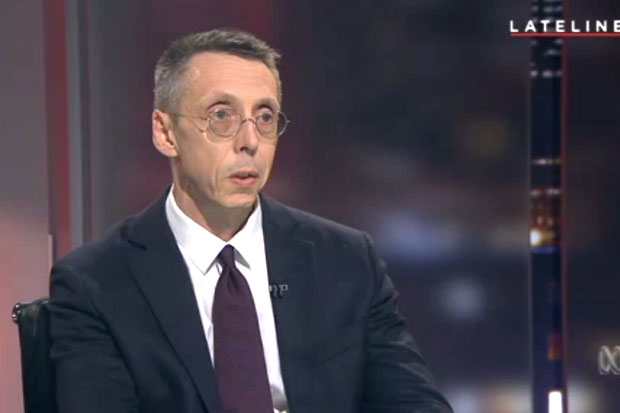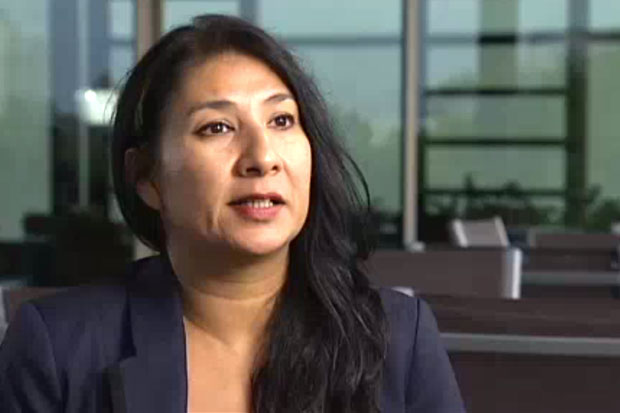Doctors and contractors who formerly worked in Australia’s immigration detention network say new legislation criminalising disclosures will have a chilling effect, and is designed to deliberately target those wishing to blow the whistle on the conditions and standards of care being provided to asylum seekers.
The Australian Border Force Bill passed the Senate in mid-May with little fanfare, and is ostensibly designed to consolidate Customs and the Border Protection Service into the Department of Immigration.
But the legislation also contained a new two-year jail sentence for employees in the Department and those working for contractors who publicly disclose information.
Dr Peter Young, a former senior employee at private health contractor IHMS – which provides medical services in on and offshore detention centres – told New Matilda there are not adequate pathways in place for whistleblowers to raise their concerns.
“I’m certainly very concerned that this legislation seems to further extend the secrecy and restrictions that affect staff working in immigration detention,” Dr Young said.
Head of Mental Health Services at IHMS for close to three years, Dr Young went public with his concerns about the impact prolonged detention was having on children, providing astounding testimony at the Australian Human Rights Commission’s inquiry in July 2014.
Aside from detailing incidents of self-harm among minors, Dr Young told the Commission he had been asked by the Department of Immigration to withdraw figures from IHMS reports that documented increased rates of psychological distress among children in detention.
Dr Young said policy makers who passed legislation discouraging whistleblowing were directly responsible for any harm that would occur as a result.
“I think that it will in some instances have a chilling effect, but the problem is that by introducing policies that make the system even more secretive and less transparent, it increases the risk of more abuse occurring and will inevitably result in more harm being done,” he said.

When the Border Force legislation was debated by the Senate, the Greens moved an amendment allowing disclosures that would not harm the public interest.
It was voted down by Labor and the Coalition, with Nick Xenophon the only non-Green to back it.
Minister for Immigration, Peter Dutton as well as Labor MPs, have previously dismissed concerns now coming to the fore about the legislation’s implications for those wishing to speak out about detention centres and their operation.
Senator Kim Carr said Labor had not been consulted on the Greens’ amendment.
“Labor supports the existing whistleblower arrangements and would oppose any attempt to dilute those protections,” he said.
“The advice we have received is that this bill does not include any provisions that would prevent an employee of the Department of Immigration and Border Protection, including the Australian Border Force, from making a public interest disclosure in accordance with the Public Interest Disclosure Act 2013, which is the act that provides protection for whistleblowers.”
But that hasn’t reassured critics, who point to the fact the Public Interest Disclosure Act is relatively weak, and only sanctions a public disclosure where there is an “imminent danger to health or safety” – a very high bar.
Dr Young is not the only whistleblower speaking out about the new laws.
In April, former Save the Children child protection worker Viktoria Vibhakar appeared on Lateline, telling reporter Jason Om that the Department of Immigration had been slow to act on accusations of sexual assault in the Nauru detention centre where she worked.
“We had reported the assault of children and asylum seekers in Nauru and our concerns over the safety of the detention facility to executives and direct supervisors. The response to child protection concerns was inadequate and allowed the abuse to continue,” Vibhakar told New Matilda.
It’s not just speaking to the media that could see whistleblowers face jail time.
The Act criminalises “disclosures” made without the permission of the Department’s Secretary, and sanctions only limited release of information, for instance to police or a coroner.
This could potentially cause issues for those wishing to discuss their experiences working in immigration centres, even in a relatively private capacity.
Law enforcement agencies have already been sent after those who have tried to use routes outside of the media to flag abuse in detention.
In March, Guardian Australia reported the Australian Federal Police were investigating an anonymous submission made to the Human Rights Commission’s inquiry.
Vibhakar said the new legislation would allow the Department and contractors to go “unchecked” in an environment “already rife with abuse and alleged violations of human rights”.
“We know that the confidentiality agreements that detention employees are required to sign have already scared people from coming forward,” she said. “If whistleblowers are prevented from coming forward, it increases the risks to health and safety of some of the most vulnerable people in the world.”
The Australian Medical Association has recently added its voice to concerns about the legislation, passing a motion at its National Conference calling on Parliament to amend the laws, and provide an exemption for medical practitioners who disclose failures in health care delivery in immigration detention centres.
Dr Barri Phatarfod, co-founder of Doctors for Refugees, said public disclosures had in the past encouraged improvements to standards of care in detention.
In late 2013 a group of 15 doctors authored a letter exposing serious failings of care in Christmas Island detention facilities.

“These things that the IHMS Christmas Island doctors disclosed in their letter led to a whole lot of changes being made by IHMS,” Dr Phatarfod said.
Doctors for Refugees works with a range of sources to bring incidents of poor care to the attention of the Department of Immigration and IHMS, sometimes going public when it fails to receive proper attention.
Just this week, the organisation helped reveal the case of an 11-year-old refugee who was denied an operation on Nauru – potentially leaving him impaired for life – after receiving scans of his fractured arm and gathering second opinions from a number of Australian specialists.
While IHMS ‘brushed off’ the concerns of Dr Phatarfod, the news eventually caused the Nauruan government to request assistance for the boy.
Dr Phatarfod told New Matilda that the 11 specialists she consulted within Australia had been happy to provide their medical opinion in private but had not been willing to go public.
Dr David Isaacs, a paediatrician at Westmead Hospital who inspected health services on Nauru in December last year on behalf of IHMS, told New Matilda he would likely fall foul of the legislation if he repeated the public criticisms he made after his trip.
“When I got there I was so horrified I felt I had to speak out,” he said.
Dr Isaacs said the new legislation appeared to specifically target whistleblowers.
“The whole idea is that it’s going to be scary to us,” he said.
“If I was to go back [to Nauru]I would have to think very, very carefully before I had an interview with the press about what was happening.
“I’m nervous because I think it’s very poor morality for a country to try and shut people up from talking the truth – there’s a huge worry about that, isn’t there?”
A statement issued by the Department of Immigration said the Australian Border Force Act would not be retrospective, meaning whistleblowers will not be pursued for previous disclosures when the law comes into effect in July.
Further questions were forwarded to the Minister’s office. No response had been received at the time of publication.
Donate To New Matilda
New Matilda is a small, independent media outlet. We survive through reader contributions, and never losing a lawsuit. If you got something from this article, giving something back helps us to continue speaking truth to power. Every little bit counts.



